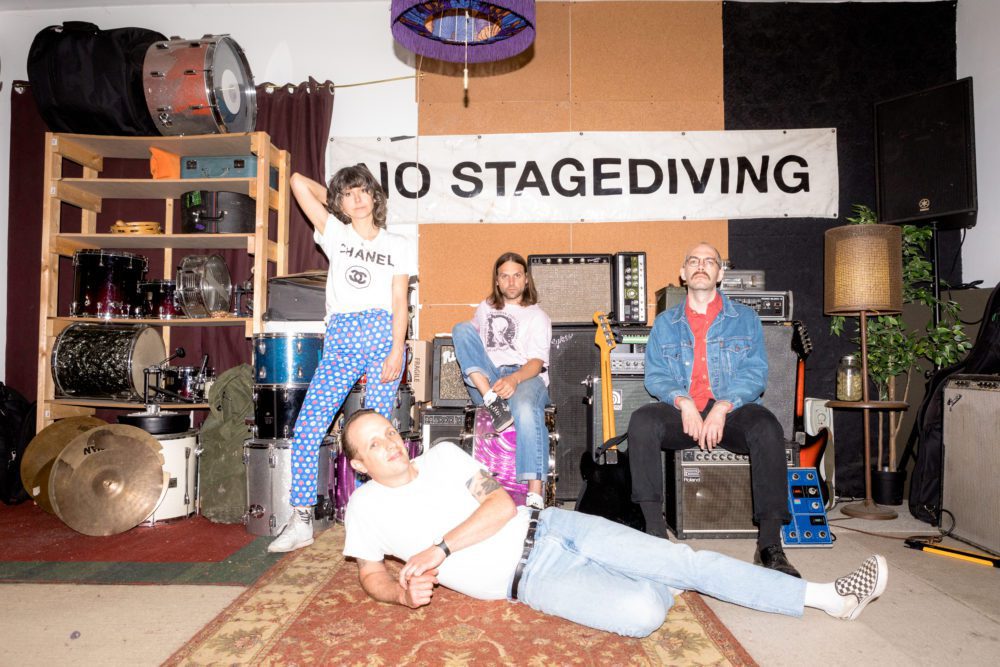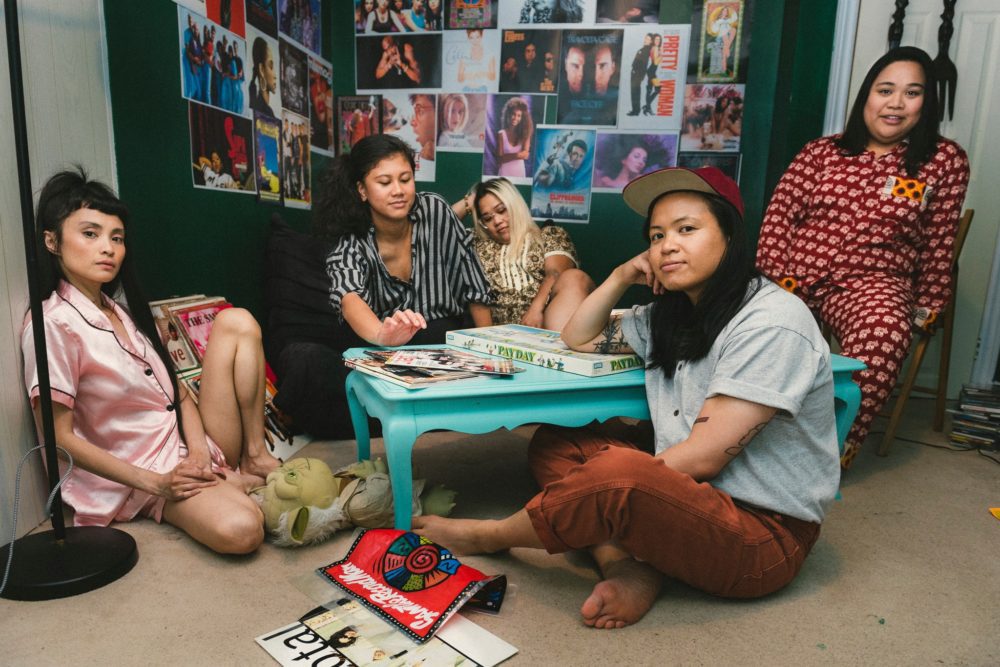

Sometimes, music prompts us to reflect on the hard truths about ourselves and the times we’re living in. Other times, it makes us want to bob our heads and shake off our worries. And, occasionally, it does both. Good Time, the latest release from Toronto-based post-punk band Teenanger is one of those rare albums that’s equal parts fun and thought-provoking. On it, bassist and vocalist Melissa Ball, singer and keyboardist Chris Swimmings, guitarist Jon Schouten, and drummer Steve Sidoli respond to political and social unrest with catchy vocal harmonies against groovy electronic guitar, creating music that is intellectual but unpretentious.
The topics addressed on the album range from dating to environmental issues, several of the songs specifically addressing mid-COVID life, making timely social commentary with playful but incisive lyrics. In “Touching Glass,” Ball sings about the disconnection that stems from always communicating through technology: “Scratch the surface/There’s a reflection/Mediocre means of a connection/Bloodshot bedroom eyes tethered and tired/Filtered fiction demands what is required.”
The most overly political track is “Trillium Song,” where Swimmings critiques the Ontario government’s failure to address COVID-induced economic losses: “Capped and traded, poisoned fertile crops/A buck a beer, closing all the tops/Manning the wheel, to drive us out of home/Dwindle the future, what have you done?”
The musical styles on the album vary to match the subject matter, which ranges from flirtatious to melancholy. “We were trying to be as open as possible and not pigeonhole ourselves with the sound,” says Ball, whose personal goal was to sing more and write more on the album than she had on past ones. On the fun, dance-rock-style “Pleassure,” Ball shouts about the “pressure for pleasure” people encounter in the dating scene, while “Beige” gives off ’90s grunge vibes, with Ball repeating in an airy, flat tone, “It’s the safest shade/Everything is beige.” On “Straight to Computer,” you can hear the influence of the Talking Heads as Swimmings half-sings, half-speaks about being immersed in “acronyms and useless chatterbots.”
Overall, the band wanted to make this album lighter and simpler than their past work, though the environment where it was written and recorded was perhaps not always conducive to lightheartedness. They had recently left a studio they shared with other bands so they could devote more time to the process, and their new studio was in a basement underneath a restaurant, where they were dealing with rats and flooding. “We were just in this little workshop in the basement, having all the time in the world, and we just naturally kind of adapted to that little basement and just had a summer full of writing,” Ball remembers.
Despite the suboptimal conditions, the new studio allowed the band the space and time to flow with their creative impulses. “We have so much more freedom,” says Ball. “We were like, try this, try that, bring different weird instruments, and I think that that freedom lifts us up a little bit, and it made a more spacious, poppier record. I think that environment has a lot to do with the writing process: If you feel pressure because you’re waiting for some band to come in or you only have a set amount of time to be creative, it’s hard because being forced into a creative setting feels rushed. The space is like another part of the record — there’s a spacial influence.”
In the playful spirit of the album, the band decided to make cover art out of their feline mascot of sorts, Roxy, who was originally Swimmings’ cat, but was later adopted by Ball and Schouten. “We just wanted to pay tribute to her because she’s the sweetest little thing,” says Ball. “We did a bunch of photos at high contrast, and we were originally going to go with the same photo, then we got a treatment on it and decided it would be that still of her with her tongue sticking out. It was more of like a dedication.”
Teenanger originated in the same kind of environment it ultimately ended up in: in a basement, where Ball would jam with Schouten and his former band. Now twelve years old, the band is releasing Good Time via Telephone Explosion as its seventh album, after 2017’s Teenager. Ball describes the band as more garage-rock in the beginning, but consistently lo-fi and DIY throughout its lifespan. “Every record seems like a new sound for us,” she says. “We’re just trying to do what come naturally right now. Not a lot is coming naturally in general in the world, but that’s all I got.”
Follow Teenanger on Facebook for ongoing updates.




